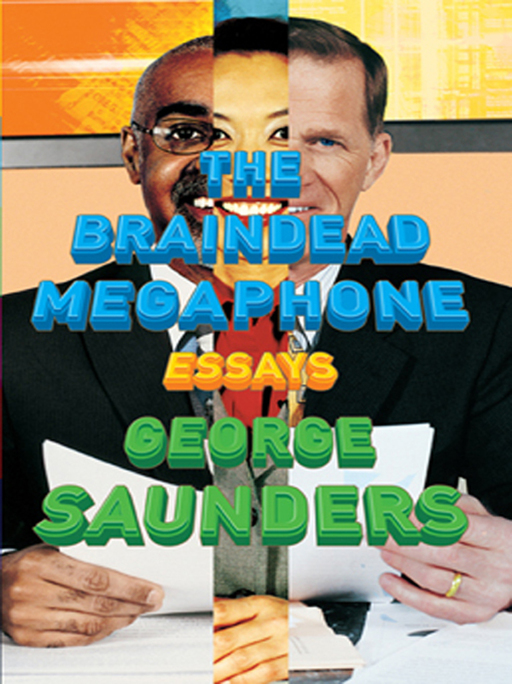
The Braindead Megaphone
کتاب های مرتبط
- اطلاعات
- نقد و بررسی
- دیدگاه کاربران
نقد و بررسی

June 25, 2007
Best known for his absurdist, sci-fi–tinged short stories, Saunders (In Persuasion Nation
) offers up an assortment of styles in his first nonfiction collection. Humor pieces from the New Yorker
like “Ask the Optimist,†in which a newspaper advice column spins out of control, reflect the gleeful insanity of his fiction, while others display more earnestness, falling short of his best work. In the title essay, for example, his lament over the degraded quality of American media between the trial of O.J. Simpson and the 9/11 terrorist attacks is indistinguishable from the complaints of any number of cultural commentators. Fortunately, longer travel pieces written for GQ
, where Saunders wanders through the gleaming luxury hotels of Dubai or keeps an overnight vigil over a teenage boy meditating in the Nepalese jungle, are enriched by his eye for odd detail and compassion for the people he encounters. He also discusses some of his most important literary influences, including Slaughterhouse Five
and Johnny Tremain
(he holds up the latter as “my first model of beautiful compressionâ€â€”the novel that made him want to be a writer). Despite a few rough spots, these essays contain much to delight.

August 1, 2007
Saunders, best known as a fiction writer (e.g., "CivilWarLand in Bad Decline"), uses the skills he's honed writing for "The New Yorker, GQ", and "Harper's" to take on politics, literature, and religion in his first essay collection. In the title piece, he discusses the many ways in which the media have become a "braindead megaphone." He compares on-air coverage of celebrity news (from the O.J. Simpson Bronco chase to Paris Hilton's incarceration) with that of hard news (e.g., the famine in Darfur and America's dependency on oil), finding the traditional television media caving to the pressure for ratings and advertising. If blame is to be assigned, he writes, a "lazy media, false promises, and political doublespeak" are the culprits. In other essays, Saunders wonders what has happened to the spirit and wisdom of Mark Twain and Kurt Vonnegut in American letters. "Mr. Vonnegut in Sumatra" is particularly timely and poignant. This lively read, by turns funny, frightening, and fascinating, is recommended for all public and academic libraries with large nonfiction collections.Pam Kingsbury, Univ. of North Alabama, Florence
Copyright 2007 Library Journal, LLC Used with permission.

August 1, 2007
All the qualities that make Saunders bristling, inventive short stories distinctive and affecting are present in his rollicking yet piercing essays: droll wit, love of life, high attention to language, satire, and metaphorical suppleness, which is what he credits Mark Twain with in his penetrating homage The United States of Huck.A MacArthur fellow whose fiction includesIn Persuasion Nation (2006), Saunders also pays tribute to another guiding light, Kurt Vonnegut. A number of essaysexplicate Saunders predilection for acrobatic parody and attunement to languages moral dimension, including the exhilarating title essay, which uses an ingenious analogyto explaintheprecipitous dumbing down of the media and the pernicious results. Saunders isalso uncommonly funny, dynamic, and incisive in hisreportingon his adventures on the border with a group of quirky and inept Minutemen, his visit to the spanking-new and massively opulent city of Dubai, and hisparticipation in amystifying vigil in Nepal. With a keen sense of the absurd, incandescent creativity, and abiding empathy, Saunders catapults the essay intonew and thrilling directions.(Reprinted with permission of Booklist, copyright 2007, American Library Association.)

























دیدگاه کاربران